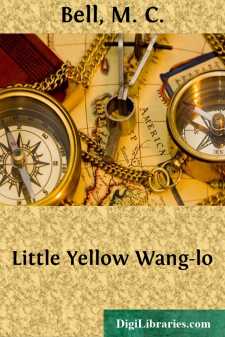Categories
- Antiques & Collectibles 13
- Architecture 36
- Art 48
- Bibles 22
- Biography & Autobiography 816
- Body, Mind & Spirit 145
- Business & Economics 28
- Children's Books 17
- Children's Fiction 14
- Computers 4
- Cooking 94
- Crafts & Hobbies 4
- Drama 346
- Education 58
- Family & Relationships 59
- Fiction 11834
- Foreign Language Study 3
- Games 19
- Gardening 17
- Health & Fitness 34
- History 1378
- House & Home 1
- Humor 147
- Juvenile Fiction 1873
- Juvenile Nonfiction 202
- Language Arts & Disciplines 89
- Law 16
- Literary Collections 686
- Literary Criticism 179
- Mathematics 13
- Medical 41
- Music 40
- Nature 179
- Non-Classifiable 1768
- Performing Arts 7
- Periodicals 1453
- Philosophy 66
- Photography 2
- Poetry 897
- Political Science 203
- Psychology 45
- Reference 154
- Religion 516
- Science 126
- Self-Help 85
- Social Science 82
- Sports & Recreation 34
- Study Aids 3
- Technology & Engineering 59
- Transportation 23
- Travel 463
- True Crime 29
Our website is made possible by displaying online advertisements to our visitors.
Please consider supporting us by disabling your ad blocker.
Little Yellow Wang-lo
by: M. C. Bell
Categories:
Description:
Excerpt
Once upon a time there was a little boy called Little Yellow Wang-lo. He lived with his father in a boat which was moored in a river near a town
His name was Fo-Pa (little Yellow Wang-lo always called him Pa). He was a duck merchant and had hundreds of ducks—white ducks, black ducks, brown ducks, big ducks, little baby ducks, and middle-sized ducks—ducks that said quack, drakes that said quork, and ducklings that said queek.
Little Yellow Wang-lo had to get up very early every morning to call the ducks close round the houseboat, and then he used to feed them; when they had eaten their breakfasts they all swam away down the river to look for little fishes, frogs and other things, and only came back at night when it was time to have supper and to go to bed.
One hot day Fo-Pa, who was a very fat little man, called little Yellow Wang-lo and told him to put on his Sunday clothes, take the little boat and row to land and sell the ducks in the market; then he was to buy a pig and bring it back to be roasted for dinner.
Little Yellow Wang-lo’s eyes shone with excitement at the idea of going on land, and his mouth watered at the prospect of roast pork for dinner. So he hurried into his best coat, hat and shoes, and, jumping into the boat, rowed quickly to land.
He soon sold all his fat ducks in one corner of the market.
So then he went to another corner where the pigs were sold, and after looking at several pigs—black pigs, white pigs, red pigs, and spotted pigs—he chose a little black pig that had white feet; he tied a string to one of its legs and started off for home.
But the little pig had a will of his own, and would not go the way little Yellow Wang-lo wanted. So little Yellow Wang-lo got a stick and beat the pig, and the pig began to pull and pull at the string, and the more little Wang-lo beat him the more he squealed and the faster he ran right through the town, away from the river out into the country.
The poor little boy was not used to running, and he soon got very tired and hot; but on piggie ran, and at last little Yellow Wang-lo tripped over a stone, the string broke, and down he fell.
Getting up quickly, he saw the little pig knocking at a little gate, and he heard it say:
“Let me in, mother; let me in.”
And a voice said: “Who’s there?”
And the little pig answered: “It’s little Wee-wee come home again.”
But the mother said: “How am I to know it is little Wee-wee? I will open the gate a little crack, and you must show me if you have white feet.”
So the mother pig opened the gate a very little way, and when she saw Wee-wee’s white feet she let him in; and little Yellow Wang-lo, who was close behind, slipped in also, for he did not dare to go home without the pig for his father’s dinner.
When he got inside he found a very big fat old mother pig and seven little black, white, red and black and white piglets.
They were playing at Catch-who-can, so little Wee-wee and little Yellow Wang-lo joined in the game until they were splashed all over from head to foot, and they had torn little Wang-lo’s Sunday coat all to rags and trodden his hat and shoes into the mud.
...


